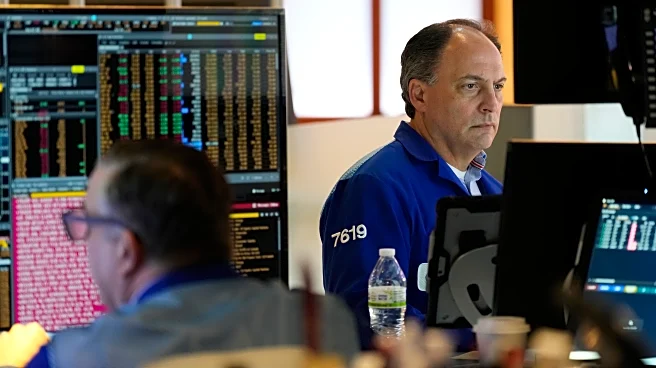What's Happening?
The Net Zero Banking Alliance (NZBA), a global initiative aimed at reducing the carbon footprint of investments, has announced its immediate shutdown. The decision follows a series of departures from the alliance, particularly after President Trump's re-election, which led to promises of deregulating the energy sector. The NZBA, convened by the UN Environment Programme finance initiative, had nearly 150 members at its peak but faced criticism for its lack of substantial action. Sustainable investment campaigners have expressed disappointment, noting the need for stronger accountability and action from financial institutions to support the clean energy transition.
Why It's Important?
The dissolution of the NZBA highlights the challenges faced by financial institutions in balancing climate commitments with political and economic pressures. The alliance's shutdown may hinder efforts to redirect financial flows towards sustainable solutions, potentially impacting global climate goals. The move also reflects broader tensions within the banking sector, as institutions navigate regulatory environments and public expectations regarding environmental responsibility. The closure of the NZBA may prompt policymakers and regulators to take more decisive action to ensure financial systems contribute to climate change mitigation.
What's Next?
With the NZBA's shutdown, individual banks may continue to pursue climate goals independently, using the alliance's guidance as a framework. Policymakers and regulators are expected to play a crucial role in driving the transition to sustainable finance, potentially introducing new regulations to limit fossil fuel financing. The banking sector may face increased scrutiny from environmental groups and the public, pushing for more transparent and accountable climate actions.
Beyond the Headlines
The NZBA's closure raises questions about the effectiveness of voluntary alliances in achieving climate goals. It underscores the need for binding commitments and regulatory frameworks to ensure meaningful progress. The situation also reflects the influence of political changes on environmental initiatives, as shifts in leadership can significantly impact climate policies and industry practices.










